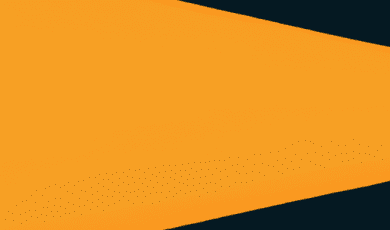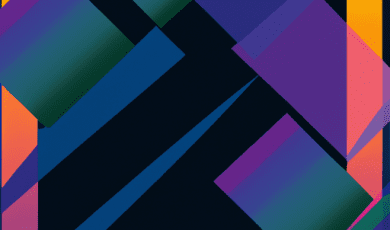
Unity in Diversity: The Role of Medical Translation Services Amid Evolving Global Trade and Politics
Introduction
In a world experiencing unprecedented globalization, language diversity remains both a blessing and a challenge—especially in crucial fields like healthcare. The intersection of news, politics, and trade tariffs has significant implications beyond economics: it shapes our ability to communicate effectively, save lives, and promote global health equity. One of the silent but indispensable contributors to this endeavor is the medical translation agency. As globalization and multinational trade grow, medical translation services play a vital role in bridging linguistic gaps, ensuring that life-saving information, products, and policies flow smoothly across borders. In this blog post, we'll examine how medical translation agencies contribute to unity in global diversity, especially in the context of the latest news cycles, shifting political alliances, and changing trade tariffs.
How Politics and Trade Shape Global Health Communication
Political decisions and trade agreements have direct effects on healthcare access, pharmaceutical supply chains, and medical research collaboration. When nations adjust
trade tariffs or pass new healthcare regulations, the ripple effects are felt by millions—often in multiple languages. For instance, new import tariffs on medical devices or pharmaceuticals can disrupt supply chains, leading to urgent changes in documentation, packaging, and regulatory compliance.
News stories from recent years have shown that political turbulence—Brexit, US-China trade tensions, or COVID-19 vaccine diplomacy—create complex scenarios where precise, timely translation of medical terms, guidelines, and regulatory information is essential. Miscommunication or delays can result in product recalls, regulatory violations, or, worse, patient harm.
This is where a professional medical translation agency steps in. Trusted language partners ensure medical data, labels, studies, and regulatory submissions are accurately translated, making them accessible to regulators, healthcare providers, and patients worldwide.
Medical Translation in the Age of Global Supply Chains
The global health landscape is constantly evolving. Medicines and medical devices are now designed in one region, manufactured in another, and distributed all over the world. Trade tariffs, export bans, and new political alliances can suddenly alter who gets access to what and when. When these shifts happen, a massive wave of documentation—regulatory filings, safety protocols, patient information leaflets, and supplier contracts—must be localized into dozens of languages and dialects. The complexity is staggering.
Importantly, effective and accurate medical translation is not only about moving words from one language to another. A medical translation agency has to ensure that terminology aligns with local medical standards, takes into account cultural sensitivities, and complies with local and international regulations. Whether translating trial documents for a new vaccine in Africa or re-labeling drug packaging due to updated trade agreements in Europe and Asia, every word must be precise and contextually relevant.
Consider, for instance, the 2020 COVID-19 pandemic. Rapid changes in trade policies and healthcare guidelines meant daily updates for manufacturers, distributors, and frontline workers around the globe. Medical translation agencies, armed with subject-matter expertise, enabled timely, accurate information flows which were critical in containing the virus and rolling out mass vaccination programs.
Breaking Down Language Barriers: Medical Translation as a Force for Unity
Language differences have historically posed barriers not only to commerce but also to public health and research collaboration. Nowhere is the mantra “unity in diversity” more relevant than in the global healthcare sector. A qualified medical translation agency brings together medical experts, linguists, and compliance specialists to ensure technical accuracy and legal conformity. This teamwork transcends borders and helps organizations navigate complex regulatory landscapes shaped by fast-moving political decisions and trade changes.
The impact goes beyond regulatory paperwork. It saves lives. According to World Health Organization (WHO) reports, miscommunication due to language barriers increases risks in patient safety, clinical trials, and emergency responses. Effective translation helps:
- Prevent medical errors caused by misinterpreted instructions
- Enable knowledge-sharing among researchers in different countries
- Ensure new medicines and devices reach the right markets promptly
- Facilitate timely public health alerts and guidance
Challenges Facing Medical Translation Agencies Today
The work of a modern medical translation agency is more complex than ever. Some of the ongoing challenges include:
- Rapidly changing regulations: With news and political climates shifting daily, agencies must stay up to date with new requirements in every country they serve.
- Technical and scientific complexity: Medical terminology evolves fast, especially during global emergencies. Translators must understand both language and science.
- Trade barriers: Tariffs and protectionist policies can suddenly open or close markets, creating a rush to re-translate legal, promotional, or technical materials.
- Ethical and data privacy issues: Handling sensitive patient or clinical trial data demands strict adherence to global privacy mandates like GDPR.
Leading providers like PoliLingua combine in-country experts and advanced technology to navigate political, commercial, and linguistic hurdles. They ensure clients stay ahead of the news and regulatory changes, whatever happens on the world stage.
Conclusion: The Way Forward—Unity and Innovation
In an era where headlines are often dominated by trade disputes, political strife, and shifting alliances, the global medical landscape can feel more fragmented than unified. Yet, standing quietly at the crossroads of these sectors are medical translation agencies, acting as translators and unifiers.
Whether adjusting to new trade tariffs, responding to health crises, or enabling multinational research, these agencies offer expertise that goes far beyond language—they deliver cultural intelligence, regulatory acumen, and technological prowess. In doing so, they promote the unity in diversity that is essential for effective global healthcare.
As global news cycles accelerate and the politics of trade tariffs challenge established norms, the need for professional, precise, and timely communication in medicine will only grow. Borderless collaboration enables breakthrough discoveries and life-saving treatments, but only if everyone can understand each other. With the support of top-tier medical translation agency partners, healthcare providers, regulators, patients, and corporations can break through the noise and uncertainty—leading the way toward a healthier, more connected world.








